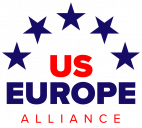“The Parties to this Treaty are determined to safeguard the freedom, common heritage and civilisation of their peoples, founded on the principles of democracy, individual liberty and the rule of law. They seek to promote stability and well-being in the North Atlantic area.”
Order, justice, and prosperity all rest on the cornerstone of physical security. The North Atlantic Treaty Organization (NATO) has proven to be the world’s most successful security and defense alliance. United in purpose and principles, NATO’s founding member states forged a coalition of North American and European states that effectively prevented the spread of authoritarianism and tyranny to open, democratic societies.
NATO’s resolute firmness in its protection of a secure and just Transatlantic Community continued after the fall of the Iron Curtain and the subsequent collapse of the Soviet Union. NATO member states stood up in defense of Bosnian and Kosovar citizens suffering tremendously amidst the violence unleashed in the wake of Yugoslavia’s dissolution. Members unwaveringly rose together in response to the terrorist attack on 9/11, leading an international coalition to free Afghanistan from its brutal Taliban rule. Today, in April 2025, this transatlantic alliance stands in increasing preparedness for new threats arising from adversarial great powers, international terrorist organizations, and other future security challenges, particularly as Russia’s ongoing war in Ukraine continues to test NATO’s unity and resolve.
Key to NATO’s intrepid endurance is the founding principle of common defense—an alliance standing to protect one and all. If one member were to be attacked, all members have freely agreed to come to its defense, a pragmatic yet unequivocally honorable choice. However, the U.S.’s role in this commitment has come under scrutiny in 2025. The Trump administration’s foreign policy shifts have introduced uncertainty, with some European allies questioning the reliability of the U.S. as a security provider. Reports indicate growing unease within NATO, with subtle changes in attitude among European allies, as the U.S. has stepped back from chairing key NATO-led military groups—a move some attribute to diminished trust following the change in U.S. leadership. Despite this, U.S. Secretary of State Marco Rubio has publicly affirmed that the U.S. will remain in NATO, and NATO Secretary General Mark Rutte has expressed confidence in continued U.S. support, particularly in enabling Ukraine to resist Russian aggression for as long as necessary.
Common values serve as the mortar that cements the bricks of the alliance: freedom of thought, speech, and assembly in an open marketplace of ideas; the right to a representative government accountable to its citizens; rule of law and the protection of property rights; and a competitive, open market where individuals can thrive. Yet, these shared values are being tested by current geopolitical dynamics. The U.S. has called for NATO allies to increase defense spending to 5% of GDP, reflecting a push for greater burden-sharing amid concerns over the alliance’s readiness for future challenges. Meanwhile, NATO’s focus has expanded beyond traditional threats, with discussions on countering hybrid warfare, cybersecurity risks, and the geopolitical influence of China, necessitating deeper transatlantic cooperation.
Lasting, successful relationships are built on shared values that transcend short-term interests and agendas. An agreed-upon set of principles prevents adversaries from exploiting momentary differences. Despite the challenges, NATO’s transatlantic bond remains vital. In March 2025, Secretary General Rutte emphasized this bond during a visit to Warsaw, laying out NATO’s path toward the upcoming summit in The Hague. USEA unequivocally supports steadfast and vigilant efforts to keep NATO fortified in the face of current and future threats to the Transatlantic Community, urging both the U.S. and its allies to navigate these tensions with a renewed commitment to unity and collective defense.

